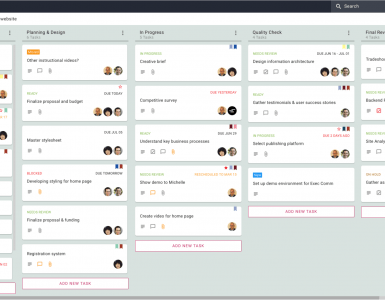At some point or the other, every freelancer considers setting up an LLC. This can be to further establish their freelance business, or to simply keep things simple during the tax period. It is also a good way to protect your online business. Whatever your reason may be, it is a good idea to be prepared before you jump straight into the process.
Setting up an LLC can have numerous benefits for your business. Some of them include-
- If you freelance without any formal business structure in place, the tax department will treat your freelancing career as an extension of your own life. It is not its own entity and this has its drawbacks.
You pay your business taxes on your own personal tax return which means you are putting your own property on the line if something goes wrong. If you were to get into a legal fix your home and car would be considered as an extension of your assets. An LLC protects you in that regard by doing exactly what you would expect- giving you limited liabilities. The LLC separates your personal life and your business life.
So, your personal assets would not be at risk if your business was at risk. This is insanely important as your career takes off. - An LLC also has fewer requirements and processes as compared to other business structures. It is one of the simplest.
- It is pretty cheap to start an LLC of your own. For example, in California, it only costs $75 to form an LLC and file Articles of Organization with the California Secretary of State
However, you should also be aware that LLCs do come with extra costs such as the franchise tax which in states like California go up to $800 per year. If you think this makes sense for your business, you should take the leap.
Now that you know you want to set up an LLC, it is important to begin your journey prepared. Here are some common mistakes you should be aware of so that you do not wind up making any of them-
1. Not knowing what is needed (documentation)
A lot of people who decide to set up an LLC make the mistake of thinking that all they need to do is fill out a form with their secretary of state and pay the fees involved. This is not exactly true. This is just the first step in the process.
After this, you also need to file the ‘Articles of Organization’ with your state’s corporate filing office which is a document that you can normally complete and submit online. It is important to make sure you are completing each step along the way which is why you should consider hiring legal help if you can afford it.
Article of Organization will normally include information like the name of your LLC, address of the registered agent, and other basic information. A registered agent is simply someone who agrees to accept legal papers addressed to the LLC at their address. A member of the LLC can also take on this role.
2. It is not a ‘one and done’ procedure
Once you create an LLC, you should be aware that there are certain things you need to do to maintain your new corporation. They aren’t complicated and it requires minimal effort but it is of great importance that you know what to do and when.
Here are some of the things you need to do to stay compliant–
- Send in your annual report on time every year. You will need to make sure you are doing this on time and paying the relevant fees. You can check out the LLC tax and filing requirements that may be relevant to you here.
- Update your state with any business changes that may happen in the course of time. This could be a change in address or agent, for example.
- If you are conducting business in any other state than the one you are registered in, you will have to register in that state as well. This also means that you will need to appoint a registered agent in that state as well.
- Since the whole point of creating an LLC is to keep your personal and business assets separate, it is important that you maintain the same logic when dealing with your finances. This means that you should keep all of the personal funds separate.
These are constant maintenance procedures that you will need to take care of no matter how old your LLC is and it would be wise if you stayed on top of them.
3. Knowing what is right for your business
Every business is different which is why an LLC may not always be the answer for you. Knowing what is right for your business is all about having the right information in front of you. An LLC is perfect for a small business that has no employees or few employees, wants limited liability protection, and is not a big fan of paperwork.
However, there are other options such as a C corporation or an S corporation. An S corporation, much like an LLC, is a pass-through taxation option which means it is a good option for some small businesses. It also has regular fees and can only be formed if your corporation had previously registered as a C corporation. This means you need to be a C corporation first to qualify to apply for an S corporation.
An S corporation also only allows for profit to be distributed based on the ownership distribution. So, if you own 75% of the business, you can only get 75% of the income.
Let us say, for example, that two friends form an S Corp for their Keyword Research service. Let us assume John and Sam actually wanted to split profits 50/50 but since John owns 75% of the company, he has to take home 75% of the income- at least in the eyes of the government. This can lead to a lot of confusion.
Lastly, a C corporation involves double taxation and allows an unlimited number of shareholders. It is most often not recommended for freelancers and you should stay away from this option.
4. Tax & regulatory requirements
Even though you are registered as an LLC, that does not automatically mean you have a business license. It would be wise to make sure you have all of the necessary business licenses that you may need before you start taking on any more work.
Some of the most common would be-
- Business License- A business license that you may need depends on the local and state authorities of the place you live in. You could check with the relevant state agencies to make sure you have all of the necessary licenses for conducting business in your state.
- EIN- Even if you are a one-member LLC, you need to make sure you have your EIN number which can be created by the IRS once you ask for one by filling out a quick and easy form. This EIN works very much like a social security number when filling out your tax paperwork. The only difference is it is your business’s social security number. The form can be completed online on the IRS website.
5. Not documenting all of your financial activity
As you begin to make more money, documenting every single penny that comes into your account and every penny that goes out is the foundation of good accountancy. You should make sure you know where your money is going so that during your tax period, things are simple for both you and your accountant.
You can use accounting software like Quickbooks or TurboTax to make things simpler for yourself. I would also suggest creating a folder in your email account labeled ‘money’ or something similar. You can use this to keep all your financial related stuff that comes via email in one place.
6. Not understanding the expenses that come with being your own boss
Understand that there are expenses that come with owning a business. For example, you are responsible for your own Medicare and Social Security payments as a self-employed business owner. It is important that you take these expenses into account when you are creating your pricing structure.
You need to price yourself keeping in mind the expenses that are coming your way. As a general rule, you can add about 10% to your rate to cover the self-employment expenses that you have to deal with.
Wrapping it up
You can hire services to help you manage most of the legwork that comes with the annual tax paying period but it is always a good idea to know what you owe and understand the laws that govern taxes. You can invest in a simple learning platform like Udemy or SkillShare, for example, to learn more. This is a good starter course on income tax and tax preparation.
As you begin to grow your business, there are inevitable bumps on the road you will have to deal with but arming yourself with information is what is going to help you deal with them better.











